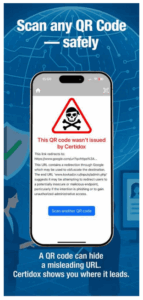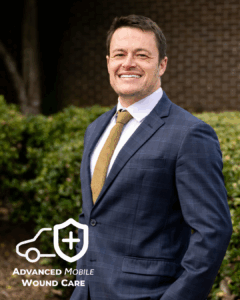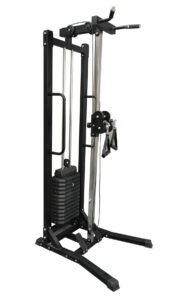As the number of LASIK procedures performed in the United States continues to climb, a growing number of prospective patients are asking an important question: “Do I need to stop taking my anxiety medication before or after LASIK surgery?” Tersigni Vision, a leading refractive surgery center founded by Dr. Steven Tersigni, is shedding light on this concern with clear, medically grounded guidance aimed at patients managing anxiety disorders. The practice has published a comprehensive online resource designed to reassure patients that mental health and laser vision correction can safely coexist when care is personalized and well-informed.
Anxiety disorders affect approximately 40 million adults in the United States, many of whom rely on medications like SSRIs, SNRIs, or benzodiazepines to maintain emotional stability in daily life. With LASIK already a procedure that naturally evokes anxiety in some patients due to its surgical nature, it’s no surprise that those considering vision correction often ask whether continuing their medications could interfere with the process or outcome. According to Dr. Tersigni, the short answer for most patients is no. “You generally do not need to stop taking your prescribed anxiety medications before or after LASIK,” says Dr. Tersigni. “In fact, maintaining emotional and physiological stability during the perioperative period is usually beneficial. We prioritize a safe, balanced approach that accounts for each patient’s full medical history.”
The article published by Tersigni Vision explains that during LASIK consultations, patients are asked to disclose all medications, including those used for anxiety. This allows the surgical team to anticipate any potential interactions, such as with post-operative eye drops, and to adjust the care plan as needed. Notably, most anxiety medications do not interfere with LASIK’s commonly used numbing drops or healing processes. By documenting and understanding a patient’s full medication regimen in advance, Tersigni Vision ensures a customized approach that maintains both visual and emotional health throughout the treatment journey.
For patients who experience procedural anxiety—whether they are on daily medication or not—Tersigni Vision takes additional steps to ensure comfort on surgery day. It is standard practice to offer a single dose of a mild sedative such as diazepam (Valium) before the procedure begins. This fast-acting medication is administered about 15 to 30 minutes before LASIK and is widely recognized for its safety and calming effect. According to Dr. Tersigni, this step can make a meaningful difference. “It’s not about overmedicating. It’s about helping patients feel calm and in control while we perform a delicate procedure that takes only minutes but can dramatically improve their quality of life.”
The article also addresses concerns from patients already taking daily benzodiazepines, such as lorazepam or clonazepam, who worry about combining them with the pre-surgical sedative. The answer, according to Dr. Tersigni, is that it can be done safely when the surgical team is aware and plans accordingly. Dosing can be adjusted to avoid over-sedation, and the patient remains alert enough to follow simple instructions during the surgery, which is performed while the patient is awake.
Dr. Tersigni emphasizes the importance of honest, open conversations between patients and their care teams. For those who are particularly nervous about surgery or have a history of anxiety-related symptoms affecting the eyes—like twitching or light sensitivity—these details should be discussed during the consultation. These symptoms typically do not disqualify someone from LASIK, but they help shape a care plan that improves comfort and outcomes. At Tersigni Vision, these factors are not overlooked but are instead built into a comprehensive refractive surgery screening that includes corneal measurements, ocular health evaluations, and a review of all medications and medical conditions.
In addition to sedative support, Tersigni Vision offers non-medication strategies for patients who want to manage anxiety naturally. These include guided breathing techniques, clear education about what to expect, and the option to bring a support person to appointments. Many patients report that understanding the process in advance and knowing that the team is experienced in caring for anxious patients is enough to ease most of their concerns.
Patients are also encouraged to bring a complete list of medications—including over-the-counter items and supplements—to their pre-operative visit. This step is crucial, as even non-anxiety medications can affect how the body heals or responds to prescribed eye drops. According to Dr. Tersigni, nothing is too minor to mention. “We treat the whole person, not just the eyes. Every piece of information helps us deliver a safer, more comfortable experience,” he says.
The article also cautions against the idea of stopping anxiety medication without guidance. For patients on SSRIs, SNRIs, or long-term benzodiazepines, suddenly discontinuing medication can lead to withdrawal symptoms, rebound anxiety, and complications that could disrupt recovery. Tersigni Vision stresses that any changes to prescribed medications should be made only in coordination with both the prescribing physician and the LASIK surgeon. “Mental health is just as important as eye health,” Dr. Tersigni states. “You should never compromise one for the other.”
To help potential LASIK patients feel better informed, the article answers a series of frequently asked questions, including: “Can anxiety affect the outcome of LASIK? Can I request a sedative even if I don’t normally take one? What types of anxiety medications are safest before LASIK? And should I be concerned about interactions with anesthesia or eye drops?” Each answer is based on current clinical practices and reflects Tersigni Vision’s commitment to transparency and patient education.
With LASIK satisfaction rates consistently above 95 percent and millions of procedures performed worldwide, many patients find that the most challenging part of the journey is simply managing their nerves beforehand. By providing a clear, evidence-based discussion of anxiety medications and their role in the LASIK process, Tersigni Vision aims to remove unnecessary stress and support patients in making well-informed decisions. Dr. Tersigni, who is board-certified and fellowship-trained in refractive surgery, has built his practice on precision medicine and a compassionate, individualized approach.
Reporters and healthcare writers interested in exploring the topic further are encouraged to contact Tersigni Vision for expert commentary or interviews with Dr. Tersigni. As both a surgeon and a patient advocate, he is uniquely positioned to speak to the intersection of mental health and vision care, especially at a time when more patients are seeking surgical solutions for vision correction while managing ongoing health conditions.
For patients in Portland and the surrounding areas who are considering LASIK and have questions about anxiety medication, the best next step is a personalized consultation at Tersigni Vision. Every patient deserves to be seen, heard, and understood—not only for their eyes, but for the whole person they are. This is the approach that defines Tersigni Vision and one that continues to draw patients from across the region seeking expert care without compromise.
















